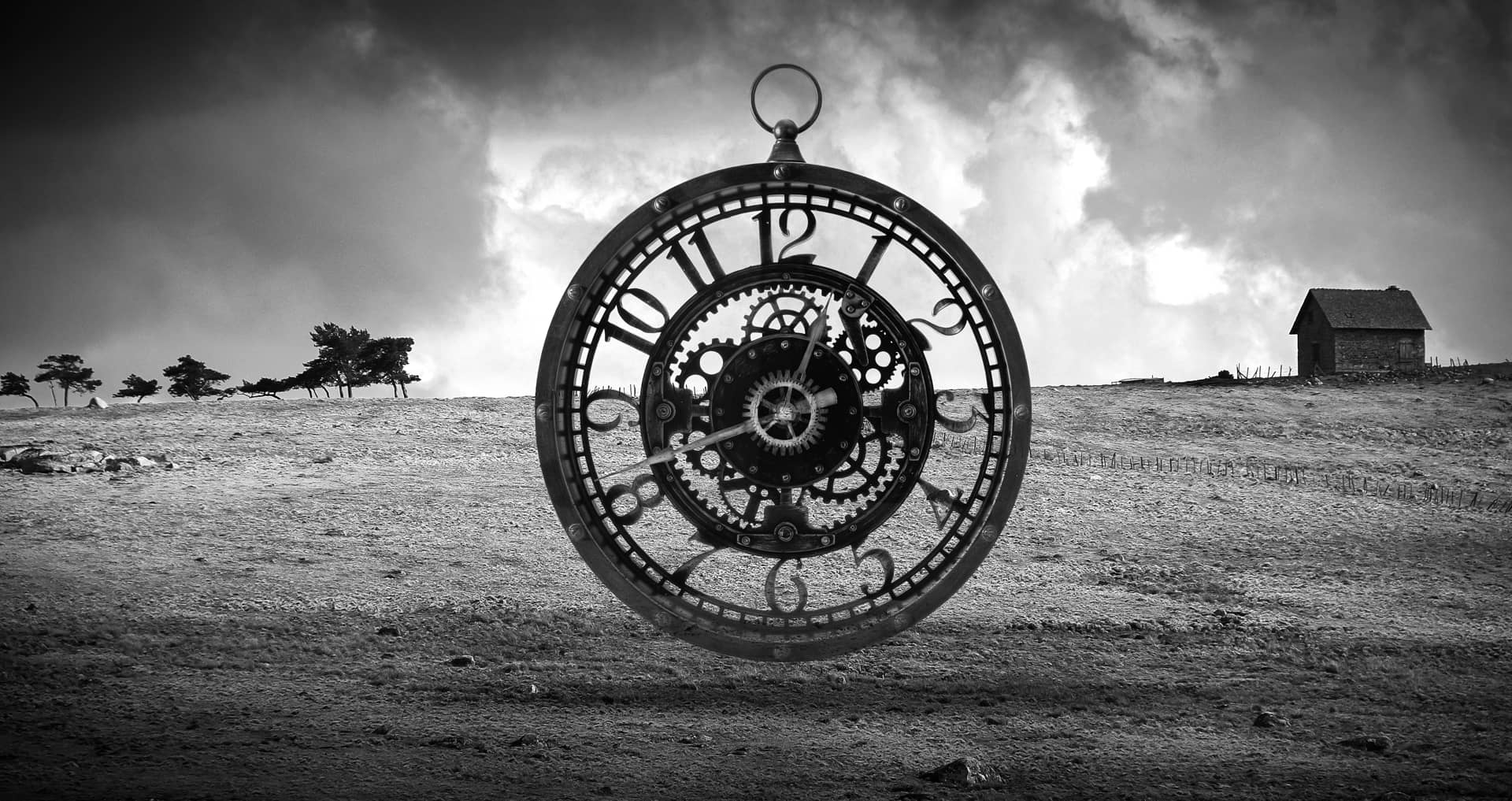The very first time Aliyah slipped away visiting, I could tell. There was something different about the pattern of her curls under the lunchroom lights, the amount of time she spent on words, and she pulled the pickles out of her sandwich. I didn’t ask her what was wrong. I asked her where she’d been.
Aliyah told me she’d imagined a world where our fathers hadn’t died in the war.
“Was it better?”
She shook her head just as the bell rang, so we packed up our things and headed back to class. “Less people dying meant the war never ended.” She sighed. “It was terrible, even more terrible than people say. We had to ration everything, there was no food and we mostly ate preserves. Too many pickles.”
I learned a lot of strange things this way. I’d never thought having a dad would mean I’d end up hating pickles. Aliyah called the places she visited otherwise worlds, and for some reason they left a mark when she returned. She once imagined a world without school; she came back from that one with more freckles, and I had to remind her that she knew how to read and do sums and that she loved books. After the world where she imagined she could fly, her bones came back brittle and her ankle snapped like a winter twig on the playground.
From then on, Aliyah was careful about which otherwise worlds she visited.
“I can’t imagine a world without you,” she told me over and over. “I don’t think I’d be able to come back from there.” And then she’d hug me tight and bury her face in my shoulder. And I’d take the opportunity to re-memorize her. She was always changing, always coming back with new scars, new tics, new stories about worlds where things were otherwise. But never better.
“This is the best possible world,” she told me again and again, and sometimes I believed her.
As we grew up, it seemed like Aliyah slipped away to visit otherwise worlds less and less. We finished school, and fought together in the new war, which was the same as the old war, but somehow less terrible. Unlike our fathers, we didn’t die, and as Aliyah predicted, neither did the war. I got married, and Aliyah slipped away into a world where she got married too, but came back bitter.
“Can you imagine a world where you’re happy?” I asked her once. It was raining, we were at the same playground where her ankle had snapped, and I had just told her I was pregnant. No one else knew.
Aliyah didn’t say anything. Her wet hair was plastered across her forehead and rain dripped off the tip of her nose. In an instant, I realized she’d slipped away visiting somewhere otherwise for a moment, and I’d only just noticed. I could no longer pinpoint exactly what made her different, but she was. I’d always taken for granted that I could tell when she’d been visiting…now I wasn’t so sure.
She wouldn’t meet my eye when she finally said, “What do you think I’ve been trying to do?”
Things got a bit better when Elijah was born. Aliyah loved him, and he loved her, and she seemed to stay put for the longest time since I’d known her. Maybe that’s just what I told myself. I still searched her face for telltale changes, but I no longer fully trusted my ability to recognize the otherwise Aliyahs I met.
When he was old enough, most days Elijah would walk to Auntie Aliyah’s house when school let out, and after work I would collect them both for dinner.
Until one day I noticed a scar on Elijah’s chin. A scar that hadn’t been there that morning when I’d dropped him off at school.
“Where did you take him?!” I was terrified, furious. “How dare you?” I burst into tears, and both Aliyah and Elijah held me close. Elijah cried because I was crying, and Aliyah whispered into my hair, “He fell in the garden, it’s just a little cut. I would never do that to you.”
She could never imagine a world without me.
But I was no longer certain of that. Perhaps I’d never truly believed it. I studied Elijah’s face the way I used to study hers, looking for new otherwise people behind his eyes, for changes in his speech, the way he hugged me. Tighter? Too tight. I began interrogating him about his wishes, his dreams, about the little ways in which he imagined the world could be otherwise. How I could be otherwise.
“I’ve never known anyone else who can go visiting like I do,” Aliyah promised me again and again and over and over, but I couldn’t tell if she was lying. I could barely remember the girl I’d known so long ago, the one who had only ever lived in the same world I did. “But if he could, would it really be so terrible?”
“Yes.” And in a sudden burst of weakness and despair I told her everything. How it had been years since I could tell when she’d been visiting, how frightened I was whenever I left Elijah alone with her now, how sometimes I would look at her and wonder if I’d ever known her at all.
Aliyah’s face barely changed. Or perhaps it had changed in a thousand ways I’d never notice. Maybe she had never changed in all the time I’d known her. For all I knew she looked exactly the same as she had that first day, when she’d imagined an otherwise world at lunch, scowling at the pickles she’d once loved.
Aliyah stepped away from me, limping slightly as always on the ankle which had never really healed right.
“Where are you going?” I asked through my tears and snot and righteous anger.
“I’m going to imagine a world where you’re happy,” she told me.
And I haven’t seen her since.

